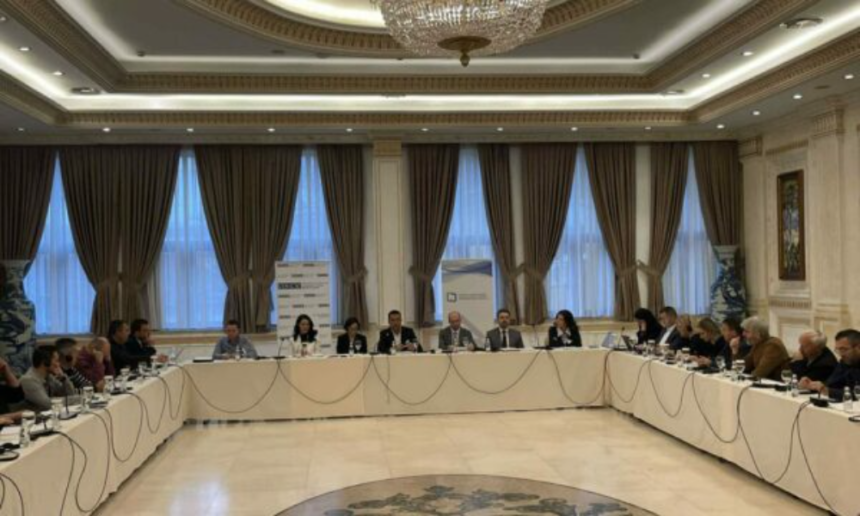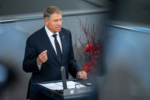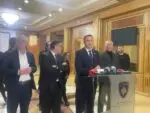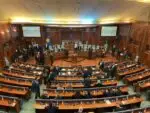The Independent Media Commission (ICM), in collaboration with the OSCE, organized a roundtable with representatives from institutions, media, and civil society organizations to discuss the obligations, responsibilities, and challenges facing the media during elections.
Jeton Mehmeti, Chairman of the Independent Media Commission announced that a new regulation has been drafted concerning media monitoring during election campaigns.
“The Commission is one of the public institutions, and the law requires the media to ensure that all public media remain impartial during election campaigns. Moreover, supervision is necessary to issue guidelines on the airing of political advertisements. Broadcasters are required to compile political airtime during the campaign period. Additionally, the Electoral Law has mandated the ICM to regulate the allocation of airtime during elections. To set limits on the duration of political advertisements, we have developed this regulation in cooperation with civil society. The ICM’s goal is to implement legal provisions and remain informed and consultative,” Mehmeti said.
Pascale Roussy, Director of the Democratization Department at the OSCE Mission in Kosovo, emphasized the importance of media adhering to rules and ensuring information is accessible, factual, impartial, and fair during elections.
“This reflects on the responsibility of journalists to respect the electoral silence. Ensuring the media plays its role is more challenging in a time when technology has transformed how media is consumed on social networks. However, it has also made information more accessible. On the other hand, digital transformation has a negative impact, creating mistrust in facts. It is crucial that we have regulations to ensure balanced media coverage. Media must act responsibly while reporting on election campaigns. We are proud to support not only the KPM but also other bodies to advance this in line with their mandates. We have addressed challenges faced by journalists in reporting on election campaigns, focusing on efficiency,” she added.
Kreshnik Radoniqi, Chairman of the Central Election Commission (CEC), emphasized that efforts are being made to ensure transparency in the election process for citizens.
“The CEC will engage monitors, and these reports will serve as information. Inter-institutional cooperation is a legal obligation. According to the electoral regulations approved by the CEC, concrete data will be provided that we will use. Financial transparency in politics is essential for both citizens and political parties. This aims to increase transparency after every election, where political entities submit their financial reports, and the Audit process will ensure these reports are published legally,” said Radoniqi.







